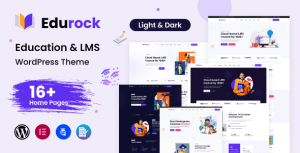What is personalized marketing, and why has it become such a buzzword in the world of advertising and marketing? Simply put, personalized marketing refers to the practice of tailoring marketing messages and strategies to individual consumers based on their preferences, behaviors, and other characteristics.
In today’s highly competitive marketplace, businesses are constantly searching for ways to stand out from the crowd and connect with consumers on a deeper level. Personalized marketing offers a way to do just that by delivering targeted messages that resonate with each consumer on an individual level. But how does it work, and what are some of the key benefits of this approach? In this article, we’ll explore these questions in depth so you can understand how personalized marketing can help your business succeed. So, without further ado, let’s dive deep.
What Is Personalized Marketing?
Personalized marketing refers to the practice of tailoring marketing efforts and messages to individual consumers or specific segments of the target audience. It aims to create more relevant and engaging experiences for customers by delivering personalized content, product recommendations, offers, and promotions based on their preferences, behaviors, demographics, or past interactions with the brand.
Personalized marketing relies on collecting and analyzing customer data, such as purchase history, browsing patterns, social media activity, and demographic information. This data is used to create customer profiles or segments that help marketers understand their audience better and anticipate their needs and preferences.
Through personalized marketing, companies can deliver targeted messages and content through various channels, including email, websites, social media, mobile apps, and even physical stores. For example, an e-commerce website may recommend products based on a customer’s browsing history or show personalized offers based on their purchase behavior. Similarly, an email campaign might address the recipient by their name and include content tailored to their interests.
The benefits of personalized marketing include improved customer engagement, increased customer loyalty, higher conversion rates, and enhanced customer satisfaction. By delivering relevant content and offers, companies can create a more personalized and meaningful connection with their customers, leading to stronger relationships and increased sales.
However, it’s important for companies to handle customer data responsibly and ensure compliance with privacy regulations. Respecting customer privacy and obtaining proper consent for data collection and usage are crucial aspects of implementing personalized marketing strategies.
Why Should You Use Marketing Personalization?
There are several reasons why businesses should consider using marketing personalization.
Improved customer experience
Personalization allows you to create tailored experiences for your customers. By delivering relevant and customized content, product recommendations, and offers, you enhance the customer experience and make it more engaging and meaningful. This can lead to increased customer satisfaction and loyalty.
Higher conversion rates
Personalized marketing has been shown to drive higher conversion rates. When customers receive messages and offers that are specifically relevant to their needs and preferences, they are more likely to take action, such as making a purchase or subscribing to a service. By delivering personalized content at the right time and through the right channels, you can increase conversion rates and boost sales.
Enhanced customer retention
Personalization helps in building stronger relationships with your customers. When you consistently deliver personalized experiences and show that you understand and value their needs, customers are more likely to stay loyal to your brand and continue doing business with you. Retaining existing customers is often more cost-effective than acquiring new ones, making personalized marketing an effective strategy for customer retention.
Increased customer engagement
Personalized marketing captures the attention of customers and encourages them to actively engage with your brand. By tailoring messages and offers to their interests and preferences, you can pique their curiosity, encourage interactions, and foster a deeper connection. Engaged customers are more likely to interact with your brand, share their experiences, and become brand advocates.
Competitive advantage
In today’s crowded marketplace, personalization can provide a competitive edge. Customers have come to expect personalized experiences, and companies that fail to deliver may be at a disadvantage. By leveraging customer data and implementing effective personalization strategies, you can differentiate your brand, attract and retain customers, and outperform competitors.
Data-driven insights
Personalization relies on collecting and analyzing customer data. This data provides valuable insights into customer behaviors, preferences, and trends. By analyzing the data, you can gain a deeper understanding of your audience, identify patterns, and make data-driven decisions to optimize your marketing efforts and improve overall business performance.
N.B: It’s worth noting that while personalization offers numerous benefits, it should be implemented responsibly, respecting customer privacy and complying with relevant regulations. Striking the right balance between personalization and privacy is crucial for building trust with your customers.
Personalized Marketing Tactics
Personalized marketing tactics are strategies used by businesses to tailor their marketing efforts to individual customers or target audiences. By leveraging data and technology, businesses can deliver more relevant and personalized messages, offers, and experiences to their customers. Here are some personalized marketing tactics that are commonly used.
Segmentation
Divide your customer base into different segments based on characteristics such as demographics, behavior, interests, or purchase history. This allows you to create targeted marketing campaigns tailored to each segment’s preferences.
Dynamic content
Customize the content of your marketing messages, such as emails, website banners, or product recommendations, based on customer data. This can include their name, location, previous purchases, or browsing behavior. Dynamic content increases relevancy and engagement.
Personalized emails
Craft email campaigns that address each recipient by their name and include relevant content based on their past purchases or browsing history. Use automation tools to trigger personalized emails based on specific actions or events.
Behavioral retargeting
Track user behavior on your website or app, and then retarget them with personalized ads or offers. For example, if a user abandons their shopping cart, you can send them a reminder email or show them ads featuring the items they left behind.
Recommendation engines
Implement recommendation algorithms that analyze customer data and provide personalized product or content suggestions. These recommendations can be based on past purchases, browsing history, or preferences of similar customers.
Social media targeting
Leverage social media platforms’ advertising capabilities to target specific audiences based on their interests, demographics, or behavior. Tailor your content and messaging to resonate with those audiences.
Loyalty programs
Develop loyalty programs that offer personalized rewards, discounts, or exclusive offers based on a customer’s past purchases or engagement with your brand. This encourages repeat business and strengthens customer relationships.
Location-based marketing
Utilize geolocation data to deliver personalized offers or messages to customers when they are near your physical store or in a specific geographic area. This can be done through push notifications, SMS messages, or targeted ads.
Chatbots and AI assistants
Implement chatbots or AI assistants on your website or messaging platforms to provide personalized recommendations, answer customer inquiries, or assist with the purchasing process. These AI-powered tools can leverage customer data to deliver personalized experiences.
User-generated content
Encourage customers to share their experiences, reviews, or testimonials about your products or services. Showcase this user-generated content to personalize and validate your marketing efforts.
Remember, while personalization can enhance customer experience and engagement, it’s crucial to balance it with privacy and data protection regulations. Always obtain proper consent and handle customer data responsibly to maintain trust and compliance.
Effective Steps to Personalize Your Marketing
Personalizing your marketing efforts is a great way to connect with your target audience on a deeper level and increase the effectiveness of your campaigns. Here are some effective steps to personalize your marketing.
Define your target audience
Start by clearly defining your target audience. Understand their demographics, interests, needs, and preferences. The more specific and detailed your audience persona is, the better you can tailor your marketing messages.
Collect customer data
Collect relevant data about your customers through various channels such as website analytics, customer surveys, social media, and email interactions. This data will help you understand their behavior and preferences, enabling you to create personalized marketing campaigns.
Segment your audience
Divide your audience into smaller segments based on common characteristics or behaviors. This segmentation allows you to create targeted campaigns that resonate with specific groups. For example, you can segment based on age, location, purchase history, or engagement level.
Craft personalized content
Create content that speaks directly to each segment of your audience. Use the data you have collected to personalize your messaging, addressing their specific pain points and offering tailored solutions. Personalized content can include emails, blog posts, social media posts, or product recommendations.
Implement marketing automation
Utilize marketing automation tools to streamline your personalization efforts. These tools can help you deliver personalized messages at scale, such as automated email campaigns triggered by specific customer actions or personalized website experiences based on user behavior.
Use dynamic content
Implement dynamic content on your website or in your emails to deliver customized experiences. Dynamic content changes based on user data, such as displaying different product recommendations or offers based on a user’s browsing history or previous purchases.
Leverage personalization technologies
Explore advanced personalization technologies like machine learning algorithms and artificial intelligence. These technologies can analyze customer data in real-time, predict preferences, and automate personalization efforts more effectively.
Test and optimize
Continuously test and optimize your personalized marketing campaigns. Monitor the performance of different personalized elements and iterate based on the results. A/B testing can help you determine which personalized strategies are most effective in driving engagement and conversions.
Provide exceptional customer service
Personalization extends beyond marketing campaigns. Ensure your customer service is also personalized. Train your customer support team to address customers by name, use customer history to provide relevant assistance, and offer personalized recommendations or offers based on their previous interactions.
Seek feedback and adapt
Regularly seek feedback from your customers to understand how they perceive your personalization efforts. Use this feedback to refine and improve your strategies. Be open to adapting your approach based on customer preferences and changing market trends.
End Notes
In conclusion, personalized marketing is a strategy that allows businesses to tailor their messaging and offerings to meet the unique needs and preferences of individual consumers. It involves the use of data and technology to gather information about customers and then create targeted campaigns that resonate with them on a personal level.
While some may view personalized marketing as intrusive or creepy, when done correctly it can be an effective way to build relationships with customers and increase sales. As technology continues to evolve, we can expect personalized marketing to become even more widespread and sophisticated in the years ahead. So if you want your business to stay competitive in the digital age, now is the time to start exploring personalized marketing strategies for your brand.







